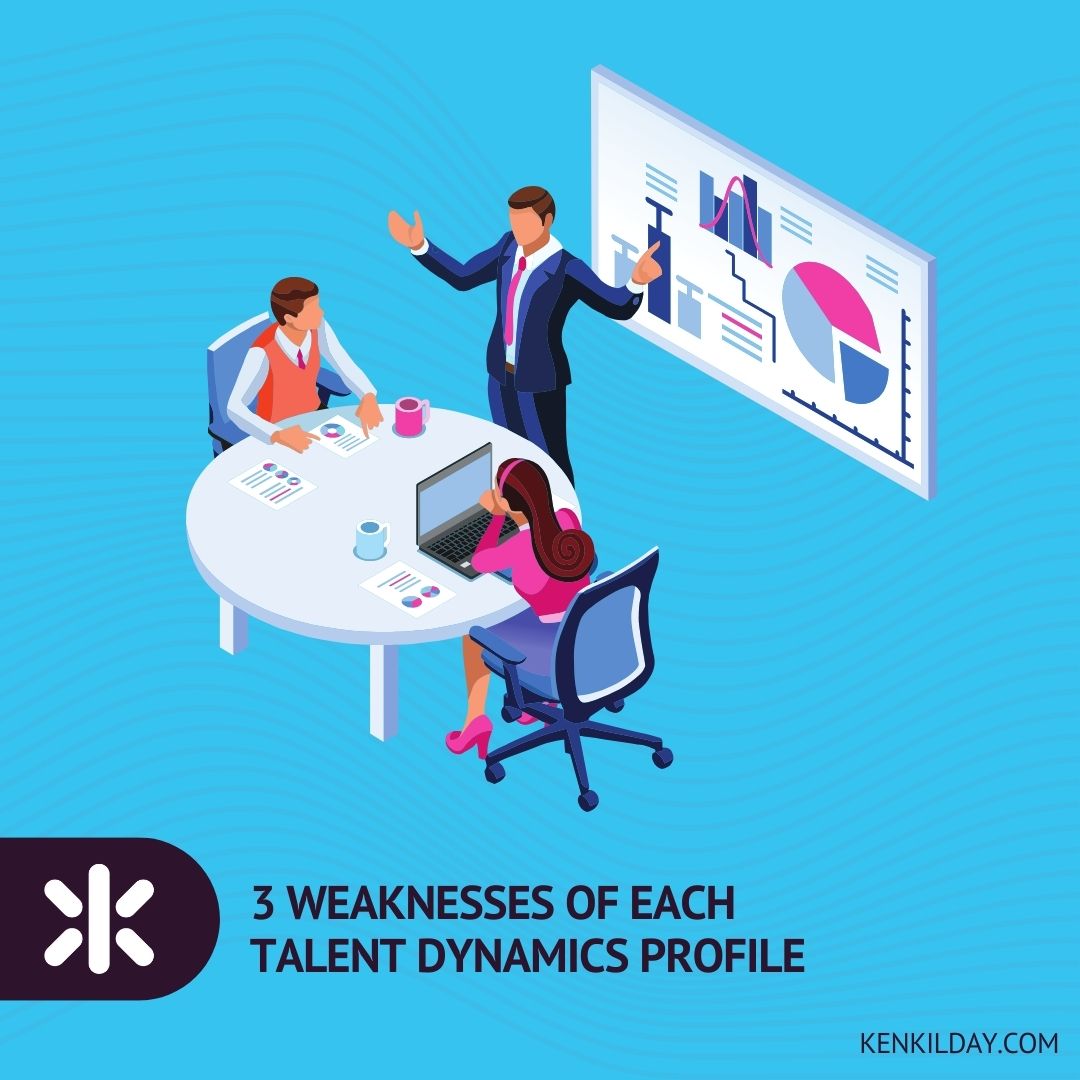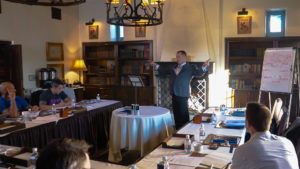“What’s the key to relating to others? It’s putting yourself in someone else’s place instead of putting them in their place.” – John C. Maxwell
Understanding individual strengths and weaknesses is crucial for driving performance and enhancing collaboration in the ever-evolving landscape of leadership and team building. Talent Dynamics, a leadership coaching framework, helps individuals and organizations unlock their true potential by identifying and leveraging specific strengths based on their profile.
In this blog, we’ll dive into the Talent Dynamics profiles, exploring each’s three key strengths and weaknesses. Whether you’re engaged in healthcare leadership coaching or executive coaching, applying these insights can significantly enhance team dynamics.

3 Strengths of Each Talent Dynamics Profile
Creator
- Visionary Thinking – Creators excel in developing big-picture strategies and innovative ideas.
- Risk-Taking – Their willingness to take calculated risks can propel projects forward.
- Motivating – Creators have a natural ability to inspire teams with their enthusiasm and drive.
Star
- Charismatic Leadership – Stars are natural-born leaders, easily attracting attention and inspiring others.
- Influence – They have a talent for building relationships and influencing stakeholders.
- Energy – Stars bring a contagious, high-energy presence to their teams, driving momentum.
Supporter
- Empathy – Supporters thrive in creating strong relationships driven by compassion and understanding.
- Team-Oriented – They excel at uniting teams and ensuring cohesion within a group.
- Communication – Supporters are skilled communicators, facilitating collaboration across diverse teams.
Deal Maker
- Negotiation Skills – Deal Makers excel in mediating and finding win-win solutions.
- Networking – Their ability to build and maintain relationships is a key strength.
- Resourceful – Deal Makers are adept at connecting people with opportunities, often turning small chances into significant wins.
Trader
- Stability – Traders provide a calming, grounded influence within teams.
- Timing – They excel at making precise decisions knowing when to act or wait.
- Risk Management – Traders are experts in managing risks ensuring stability in uncertain environments.
Accumulator
- Attention to Detail – Accumulators are incredibly detail-oriented, ensuring no aspect of a project is overlooked.
- Conservatism – Their cautious approach ensures resources are managed effectively.
- Patience – Accumulators excel in long-term planning, waiting for the right moment to act.
Lord
- Systematic Thinking – Lords are highly organized, creating efficient systems to maximize productivity.
- Analytical Skills – They excel at analyzing data to make informed, strategic decisions.
- Resource Optimization – Lords ensure optimal use of resources, avoiding waste and inefficiency.
Mechanic
- Problem Solving – Mechanics excel at identifying and fixing inefficiencies.
- Systems Development – They’re skilled at building systems that improve processes and workflows.
- Continuous Improvement – Mechanics always seek ways to refine and optimize operations.

3 Weaknesses of Each Talent Dynamics Profile
Creator
- Impatience – Creators may struggle with details, often losing interest in execution.
- Overconfidence – Their big ideas may lead to overlooking potential risks.
- Inconsistent Follow-Through – Creators can be great starters but struggle with finishing.
Star
- Over-reliance on Recognition – Stars may need constant validation to stay motivated.
- Impatience with Details – They often overlook the finer details in favor of the big picture.
- Delegation Challenges – Stars may struggle to delegate, preferring to be the center of attention.
Supporter
- People-Pleasing – Supporters can prioritize relationships over results, avoiding difficult conversations.
- Indecisiveness – Their empathy can lead to challenges in making hard decisions.
- Overextending Themselves – Supporters can take on too much, trying to help everyone.
Deal Maker
- Over-Compromising – Deal Makers may concede too much in negotiations to maintain harmony.
- Inconsistent Focus – Their tendency to juggle multiple deals can lead to scattered focus.
- Avoidance of Conflict – Deal Makers may avoid necessary confrontations, delaying important decisions.
Trader
- Risk Aversion – Traders can be too cautious, missing out on growth opportunities.
- Over-Analysis – They may have paralysis by analysis, delaying action.
- Resistance to Change – Traders can be slow to adapt to rapidly changing environments.
Accumulator
- Overly Cautious – Accumulators may hesitate to take necessary risks, slowing progress.
- Inflexibility – Their preference for structure can make it hard for them to adapt to new situations.
- Resistance to Delegation – Accumulators may struggle to trust others with important tasks.
Lord
- Micromanagement – Lords can be overly controlling, wanting to handle everything themselves.
- Over-Analytical – They may get bogged down in data, delaying decisions.
- Lack of Flexibility – Lords can be rigid and struggle to adapt to changing circumstances.
Mechanic
- Perfectionism – Mechanics may become overly focused on improving systems, delaying progress.
- Inflexibility – Their love for systems may make them resistant to change.
- Over-Engineering – Mechanics can make things more complex than necessary, reducing efficiency.

Elevate Your Team’s Potential with Talent Dynamics Profiles
Understanding the strengths and weaknesses of each Talent Dynamics profile allows leaders to better leverage their teams’ unique abilities. By focusing on strengths while mitigating weaknesses, organizations can improve collaboration, productivity, and results. Whether you’re engaging in leadership coaching, healthcare leadership coaching, or executive coaching, applying these insights can lead to more aligned, effective teams and, ultimately, more successful outcomes.
If you’re ready to take the next step in transforming your team dynamics and leadership effectiveness, schedule a complimentary meet and greet with us today! Let’s discuss how we can tailor these strategies to help you achieve your business goals.




